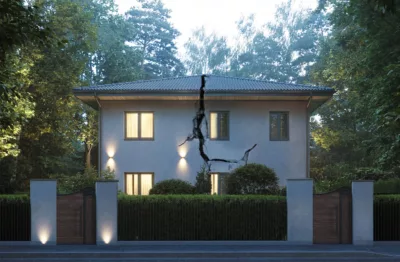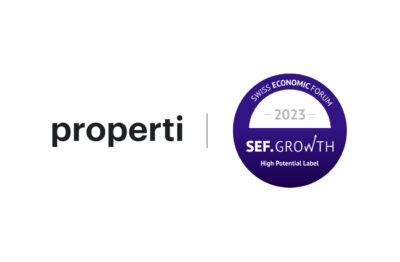Are you renting out a property for the first time and want to avoid initial mistakes when letting? Then there are a few important things you should bear in mind. In fact, it’s not that easy to be a good landlord. Only those who are well informed can successfully rent out an apartment or house in Switzerland, even as a new landlord. Below you can read about the beginner’s mistakes you need to avoid in order to avoid certain pitfalls.
Table of contents
Toggle
Can I be a landlord by profession?
In principle, it is possible to pursue a career in the housing industry. However, most landlords are private individuals who rent out a property. However, most people cannot live on this and should continue to do their usual work. Instead, renting is more of a side income.
What is interesting here, however, is the possibility of financing the purchase of a second home by renting it out. Ideally, you will receive at least enough rent to cover the monthly loan repayments. This means you have no additional costs and at best even make a profit.
Letting is only worthwhile if the yield is sufficiently high. This means that your running costs, including renovation reserves, are covered and you also make a profit. Also bear in mind that as a private landlord you have to spend a lot of time.
The following factors determine whether it is worth renting out an apartment:
- Amount of ancillary costs
- Condition of the apartment
- Amount of the rent
- Attractiveness of the apartment
Some properties are difficult to let or bring little return. Then it may be worthwhile to to think about the sale. We recommend that you seek the support of a professional real estate agent, both as a landlord and as a seller. This also makes sense if you own several properties and are considering becoming a landlord by profession, as the expert will provide you with comprehensive advice.
When managing several properties, be sure to seek advice from a specialist – we will be happy to help!
How do I find a good tenant?
As a new landlord, there are many things you need to bear in mind to avoid mistakes when renting. Starting with the search for the right tenant: Tenants who are non-smokers, do not have children or pets, have a high and stable income and are reliable are the most popular. In addition to punctual rent payments, as a landlord you are also interested in a long-term tenancy and proper management of the property.
Identifying suitable tenants is not that easy. You should therefore pay close attention from the very first inquiries from interested parties and ask the right questions. This can be done using the self-disclosure form, but also in a personal interview during the
House or apartment viewing
.
Also bear in mind that the individual impression plays an important role. With a little knowledge of human nature and experience, you can quickly identify a suitable tenant. Therefore, rely partly on your gut feeling and then back it up with appropriate documents.
The tenant self-disclosure is one of the best methods for creating verifiable facts and comparing different prospective tenants. This is a form that you can send to interested parties electronically or in paper form. They do not necessarily have to complete the self-disclosure form, but will do so to improve their chances in the application process.
You will receive this information in the tenant self-disclosure form:
- Name
- Address
- Profession
- Employer
- Income
- In addition: certificate of no rental debt from the previous landlord
Tip: Tenants should spend a maximum of one third of their disposable income on rent. Higher amounts may jeopardize solvency. You should therefore calculate whether prospective tenants meet this criterion on the basis of current proof of income.
In addition, you can also secure yourself with a
debt collection excerpt
from. This official document lists rent debts and other unfulfilled claims. Make sure that it is a reputable document that certifies that the prospective tenant is debt-free.
Last but not least, as a landlord you may charge a rental deposit. This may amount to a maximum of three months’ rent (six months’ rent for commercial properties). In the event of damage to the apartment or rent arrears, you may use the deposit to cover the tenant’s debts.
5-year tenant guarantee:
A long-term tenancy, punctual rent payments and careful handling of the rental property are characteristics of a perfect tenant. With our 5-year tenant guarantee and a detailed tenant check, we guarantee you all of this.
What can I ask the prospective tenant?
Apart from the official information, as a landlord you may also ask your prospective tenants questions. Here it is precisely regulated which questions are permissible and which are not. If you ask inadmissible questions, the tenant may answer them untruthfully – one of the few situations in which the law allows lying!
Questions such as religious denomination, marital status, the duration of previous tenancies, the amount of the previous rent or membership of tenants’ associations are not permitted. You are also not allowed to ask about illnesses, sexual orientation or religious affiliation.
However, the question of whether the person is a foreign citizen or a Swiss citizen is permitted. You will receive this information anyway with the copy of the identification document, which should be available at the latest when you sign the rental agreement. You can also ask about any flatmates and plans for subletting.
What to do about rental nomads?
A common fear of new landlords, but also of experienced landlords, are
rental nomads
. These are professional fraudsters who move into properties with no intention of ever paying the rent. They use all the loopholes in tenancy law to stay in their home for as long as possible, which can even lead to foreclosure.
In the worst case scenario, as a landlord with nomadic tenants, you will not only be stuck with the costs, but will also be left with an apartment in very poor condition. It is therefore all the more important to proceed very carefully when interviewing and selecting tenants. Pay particular attention to any existing debts and keep an eye out for any forged documents.
Incidentally, one of the best ways to protect yourself from rental nomads is to get help from an estate agent. The experts know all the warning signs and will help you to find a reputable and reliable tenant instead.
What must be in the rental agreement?
Once the tenant has been determined, you will need a tenancy agreement. It is best to conclude this in writing to protect yourself. There are online rental agreement templates which you can use free of charge.
You can adapt the rental agreement if you wish. The following information should be included as a minimum:
- Information on the rental properties
- Details of the rented property, including access to rooms such as the cellar, attic or laundry room
- Amount of the rent (net)
- Amount of ancillary costs in addition to the rent
- Amount of the rental deposit
- Duration of the tenancy (limited or unlimited)
- Termination conditions
- Regulations on possible subletting
What ancillary costs can I charge?
To the
ancillary costs
includes all expenses related to the use of the property. For example, you may charge tenants for heating, hot and cold water, waste water, electricity, elevator, janitor, cable connection, garbage collection and a flat-rate administration fee.
However, you as the landlord must pay taxes, insurance premiums, connection fees, maintenance, purchase and repair costs yourself. In many cases, you can deduct these expenses from your taxes. Ask your tax advisor about this.
The ancillary costs should be listed in the rental agreement in as much detail as possible. Please also indicate whether you prefer to charge a flat rate or invoice on account. With the latter, you bill the actual service charges, while the flat rate is an estimate and can be adjusted in the annual service charge statement. You may also have to make back or additional payments – take particular care to avoid errors in the utility bill.
What do I have to do as a landlord during the tenancy?
As soon as the rental contract is signed, you can organize the handover of the property on the agreed date. Do not hand over the keys until the deposit has been transferred and the tenancy agreement has been signed. This protects you against non-payment.
As the landlord, you are obliged to maintain the property in the contractually agreed condition during the tenancy. Accordingly, you will need to carry out repairs and renovations as required. Apart from that, however, you only have a few practical duties.
From a financial point of view, you must
pay income tax on the rental income during the entire tenancy
. Also make sure you keep all relevant payment receipts, for example for mortgage interest, maintenance and ancillary costs. You can also receive tax rebates for value-preserving measures, renovations and insurance premiums.
Remember that as a homeowner you have to pay annual taxes such as property tax and wealth tax. Both are regulated in more detail in the respective cantonal tax regulations. Your tax advisor can also help you.
Last but not least, as a good landlord you should always have an open ear for your tenants. Guarantee your availability during business hours, show goodwill and cultivate your relationship with tenants by sending a nice Christmas card or other gifts. This will enable you to rent your apartment in Switzerland to good tenants in the long term.
Do you have questions about being a landlord, would you like advice on common landlord mistakes or would you like support from a professional estate agent? Then get in touch with us – we also offer free consultations for landlords.
All data are without guarantee. The information on these Internet pages has been carefully researched. Nevertheless, no liability can be accepted for the accuracy of the information provided.












